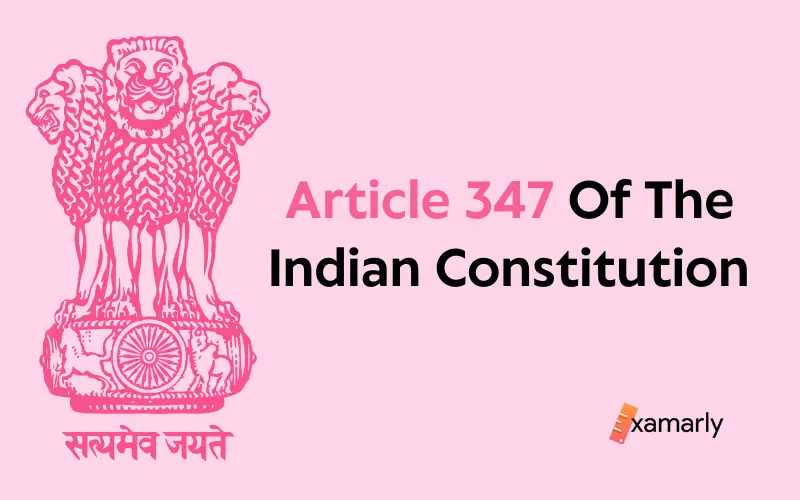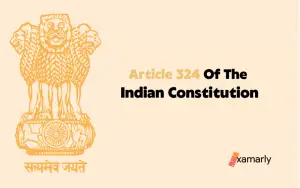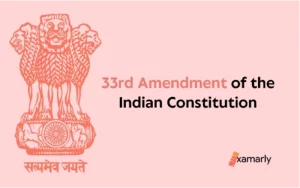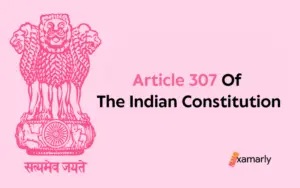An Outline
Article 347 of the Indian Constitution deals with special provisions relating to the language spoken by a section of the population of a state. This article recognizes the diversity of languages spoken in India and the need to protect and preserve these languages.
It states that the President may, after consultation with the state government concerned, specify the languages that may be used for the official purposes of that state.
This article also gives the President the power to direct the use of any particular language or languages for any official purposes of the Union.
In this blog, we will take a closer look at the provisions of Article 347 and its key role in protecting the linguistic diversity of the country. We will also explore the role of the President in implementing this article and the challenges that may arise in its implementation.
- An Outline
- Article 347 Of The Indian Constitution – Special Provision Relating To Language Spoken By A Section Of The Population Of A State
- Importance Of Article 347 Of The Indian Constitution
- Conclusion
- FAQs Related To Article 347 Of The Indian Constitution
- Which part of the Indian Constitution does Article 347 belong to?
- Which schedule of the Indian Constitution talks about Official Languages?
- When was Article 347 of the Indian Constitution adopted?
- What is the purpose of Article 347 of the Indian Constitution?
- How does Article 347 of the Indian Constitution promote linguistic inclusivity in India?
- What are some examples of how Article 347 of the Indian Constitution has been implemented in India?
- Is Article 347 of the Indian Constitution applicable to all states in India?
- Can Article 347 of the Indian Constitution be amended or repealed by a body?
- Does Article 347 of the Indian Constitution have any provisions for the use of regional languages in the media?
Article 347 Of The Indian Constitution – Special Provision Relating To Language Spoken By A Section Of The Population Of A State
The special provisions outlined in Article 347 of the Indian Constitution are crucial for promoting linguistic inclusivity and cultural diversity in India. They play a vital role in ensuring that all linguistic communities in the country have the opportunity to preserve and promote their cultures and traditions.
What specification or condition is mentioned in Article 347 of the Indian Constitution regarding the language or languages spoken in a State?
Let’s study the clause closely and learn what it states.
The Clause – As it is & Explained
On a demand being made in that behalf the President may, if he is satisfied that a substantial proportion of the population of a State desire the use of any language spoken by them to be recognised by that State, direct that such language shall also be officially recognised throughout that State or any part thereof for such purpose as he may specify.
Article 347 of the Indian Constitution, in its clause, explains and defines the power of the President in enabling a State to recognise a language spoken by a part of the population.
It states that, if a request is made in this regard, the President in response to it has the authority to permit the use of the desired language which can also be recognized throughout the state to communicate for official purposes. But the decision of the President also depends on the satisfaction of the President that a significant fraction of the population of that state speaks the said language.
Importance Of Article 347 Of The Indian Constitution
The importance of Article 347 of the Indian Constitution lies in its recognition of the linguistic diversity of India and the need to protect and preserve the linguistic identities of the various communities living in the country.
This article serves as a safeguard for linguistic minorities and ensures that their rights to use and preserve their languages are protected. It is an important provision that reflects the multicultural and multilingual nature of Indian society.
The provisions of Article 347 of the Indian Constitution have been instrumental in promoting the use of regional languages in education and other spheres of life. It has also helped to protect the linguistic rights of minorities and ensure that their cultures and traditions are not marginalized.
This article is very important for those who speak languages that are not recognized as official languages in India. It allows them to use their own language while dealing with legal and administrative matters within the state they reside in.
Conclusion
In conclusion, Article 347 of the Indian Constitution plays a vital role in preserving and promoting the linguistic diversity of India. This article ensures that the language spoken by a section of the population in a state is given special protection and provisions. It recognizes the importance of language in the cultural identity of a community and the need to ensure that linguistic minorities have access to education and other opportunities in their own language.
This provision has helped many minority populations across India maintain their cultural identity and heritage even though they may not be able to communicate fluently in mainstream national languages like Hindi or English due to a lack of exposure or education opportunities available for learning these tongues. Furthermore, this law helps protect linguistic diversity from being suppressed through uniformity which would otherwise take away from India’s rich culture and tradition which makes our country unique compared with others around the world!
Overall, Article 347 is an essential part of our constitution because it works towards protecting linguistic minorities throughout India while also allowing them equal access when engaging with public services such as education institutions, etc., thus ensuring fairness regardless of one’s background!
You Might Also Like To Read:
- Article 344 Of The Indian Constitution
- Article 345 Of The Indian Constitution
- Article 346 Of The Indian Constitution
FAQs Related To Article 347 Of The Indian Constitution
Which part of the Indian Constitution does Article 347 belong to?
Article 347 of the Indian Constitution belongs to Part XVII which is called Official Language.
Which schedule of the Indian Constitution talks about Official Languages?
The Eighth Schedule of the Indian Constitution mentions the Official Languages of India.
When was Article 347 of the Indian Constitution adopted?
Draft Article 301E (Article 347 of the Indian Constitution 1950) was adopted on 14 September 1949.
What is the purpose of Article 347 of the Indian Constitution?
Article 347 of the Indian Constitution aims to provide special protection and provisions for the language spoken by a section of the population of a state. This article recognizes the linguistic diversity of India and the importance of preserving and promoting the use of regional languages.
How does Article 347 of the Indian Constitution promote linguistic inclusivity in India?
Article 347 of the Indian Constitution ensures that linguistic minorities have access to education and other opportunities in their own language. It also helps to protect the linguistic rights of these communities and prevent the marginalization of their cultures and traditions.
What are some examples of how Article 347 of the Indian Constitution has been implemented in India?
Article 347 of the Indian Constitution has been implemented in a number of ways in India. For example, it has been used to provide support for the development of regional languages and promote their use in education and other spheres of life. It has also been used to ensure that linguistic minorities have access to government services and information in their own language.
Is Article 347 of the Indian Constitution applicable to all states in India?
Article 347 of the Indian Constitution is applicable to all states in India. It applies to any language spoken by a section of the population in a state, regardless of the size of the community speaking that language.
Can Article 347 of the Indian Constitution be amended or repealed by a body?
Article 347 of the Indian Constitution is a non-amendable and non-repealable provision of the Indian Constitution, meaning it cannot be amended or repealed by the Parliament or any other authority.
Does Article 347 of the Indian Constitution have any provisions for the use of regional languages in the media?
Article 347 of the Indian Constitution does not specifically address the use of regional languages in the media. However, it does recognize the importance of preserving and promoting the use of regional languages and may be used to support the use of these languages in the media.






